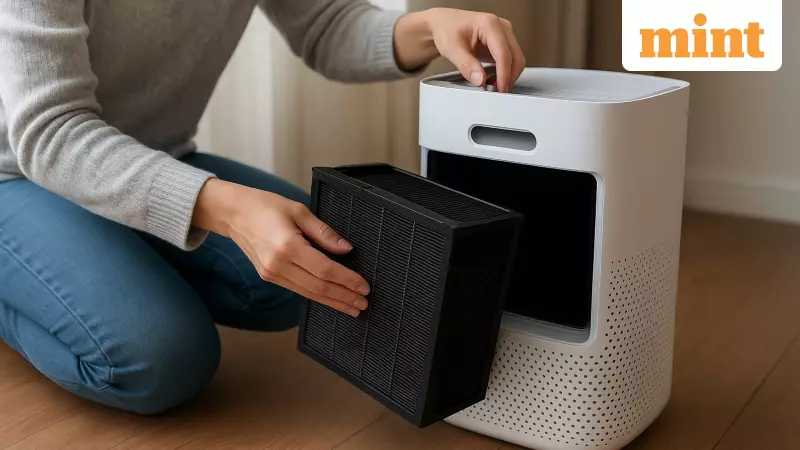
Every winter, Delhi's atmosphere transforms into a thick, hazardous smog, with air quality index (AQI) readings consistently entering the "severe" territory. This annual environmental crisis forces residents to retreat indoors, but the poisonous air relentlessly seeps into homes. Across the national capital, the constant hum of air purifiers has become the soundtrack of the season, with families running them 24/7 in a desperate bid to ward off respiratory illnesses.
This surge in purifier usage has led to an unprecedented demand for replacement filters. However, with the cumulative cost of these filters sometimes exceeding the price of the purifier unit itself within a year, a critical question is emerging in countless households: Is it possible to simply wash and reuse these expensive filters instead of replacing them?
The Critical Warning About HEPA Filters
Experts are issuing a stern and unanimous warning: washing a HEPA (High-Efficiency Particulate Air) filter is a counterproductive move that renders your air purifier ineffective. Most high-quality air purifiers in India, specifically those recommended for combating the deadly PM2.5 pollution, rely on HEPA technology.
Edwin Cheung, Founder of Rabbit Air, explains the science behind the warning. "The dense fibres inside HEPA filters are engineered to trap microscopic particles deep within their structure," he states. "Washing or even vacuuming the filter causes irreversible damage to this delicate architecture. This damage creates gaps and tears, allowing pollutants to pass straight through and back into your room's air."
In practical terms, if you wash your HEPA filter, your purifier might continue to operate and make noise, but it will fail its primary function. Your family could still be inhaling toxic particles, viruses, and bacteria, completely unaware that their first line of defense has been compromised.
Understanding Washable and Pre-Filters
While the main HEPA filter is strictly a single-use component, some air purifier models, especially budget-friendly ones or those with multi-stage filtration, include other types of filters that are designed for cleaning.
These typically include washable mesh or foam pre-filters. Their role is to capture larger particles like visible dust, lint, and pet hair, thereby extending the lifespan of the more expensive, non-washable HEPA filter inside.
Scott Hardesty, CEO of Caccia Home Services, confirms that these pre-filters can be cleaned but advises caution. "Washable filters can be rinsed under running water, but you must avoid harsh detergents and aggressive scrubbing," he notes. Such practices can weaken the filter material over time, diminishing its ability to trap larger pollutants. A compromised pre-filter also forces the HEPA filter to work harder, reducing its overall life.
Cleaning pre-filters every couple of weeks with a gentle vacuum or a light rinse is recommended to maintain strong airflow in the device. However, a crucial step is often overlooked: ensuring the filter is completely dry before reinserting it. Any leftover moisture can lead to mould growth inside the purifier, creating a new source of indoor air pollution. Always remember to unplug the device before cleaning any part of it.
The Bottom Line for Delhi's Residents
In a city like Delhi, where the air itself is a visible health hazard, a poorly maintained air purifier is almost as detrimental as having no purifier at all. The financial temptation to wash and reuse a HEPA filter is understandable, but it ultimately defeats the very purpose of owning the device.
The key to ensuring the clean air you are paying for actually reaches your lungs lies in understanding your purifier's filter system. Recognize that the core HEPA filter is a consumable item that must be replaced as per the manufacturer's schedule, while pre-filters can be regularly maintained to optimize performance and cost.






